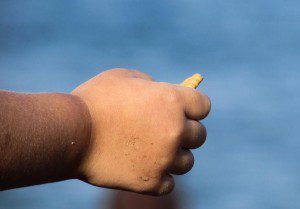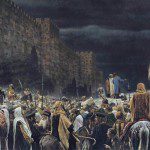
We’ll pass it on to you . . .
These words, from the musical Hamilton, are a father’s promise to a new child: “We’ll pass it on to you, we’ll give the world to you . . . .” The song is a pledge full of hope and, for contemporary audiences, full of dramatic irony. We know that the world the American revolutionaries passed on to their children was like the one we pass on, a troubling mix. They had won freedom from British rule; they had written a resilient Constitution; they had established peaceful transfer of power; they had separated church and state. They had not eliminated slavery or mandated sewers or made adequate provision for universal education or dismantled white privilege or allowed women a voice.
But parents, to become parents, have to hang onto and hold out the hope of passing on a better world. Children, in their utter vulnerability, innocence, malleability open our hearts and imaginations. They bring out our protective instincts. They make us take a new look around, newly assessing the dangers, the costs, the promise of life on earth. And they deepen our sense of responsibility—political as well as familial. Not only if we’re parents.
All children belong to all of us, Marian Wright Edelman insists. “So much of America’s tragic and costly failure to care for all its children,” she writes, “stems from our tendency to distinguish between our own children and other people’s children–as if justice were divisible.” Imagine if each of us adults took this to heart—if every time we saw a child we paused even momentarily to ask ourselves, “Does she have enough access to healthy food?” “How’s the school in her neighborhood doing?” “Does he look confident and happy? Apprehensive and angry?” “What kind of attention might this kid need?”
And what if we remembered, or reminded ourselves, more frequently what it’s like to be a child? Whitman’s remarkable imagination for a child’s imagination models an awareness we might do well to cultivate:
There was a child went forth every day;
And the first object he look’d upon, that object he became;
And that object became part of him for the day, or a certain part of the day, or for many years, or stretching cycles of years.
The early lilacs became part of this child,
And grass, and white and red morning-glories, and white and red clover, and the song of the phoebe bird,
And the third-month lambs . . . .
The list goes on and on. Children absorb and absorb—a fact Maria Montessori explored with meticulous, generous elegance in her book, The Absorbent Mind. The verb is important: up to around the age of seven, children don’t analyze (though they’ve been known to object…) or reason incrementally, but receive and lay down patterns and put down roots and watch and wonder and feel.
“Unless you turn and become like children,” Jesus teaches his puzzled followers, “you will never enter the kingdom of heaven.” This is about as logical as telling them they had to be “born again.” Not for literalists, this kind of wisdom. But that’s the point; virtue—love, justice, right use of power—depends on imagination. What is it like to be a child? What would I need if I were a child, now, here, in this generation? What is this child absorbing, literally and figuratively, from the ambient air, water, classrooms, culture? Those questions, asked with a certain child in mind, but not only that child, might help us keep a grip on the hope we need to repair and restore our ailing planet in such a way as to pass it on.
I write this with a particular child in mind today—one we just found out is getting ready to begin her journey in the world. We are ready to love her and, loving her, to let our capacity to love be expanded yet again as we see in her the needs and the possibilities and the promise we hope also to keep seeing even in the screaming child on the subway who doesn’t yet know, or need to know, what the struggle is about. Not while it’s in our power to help make sure she’s fed and safe and loved.












